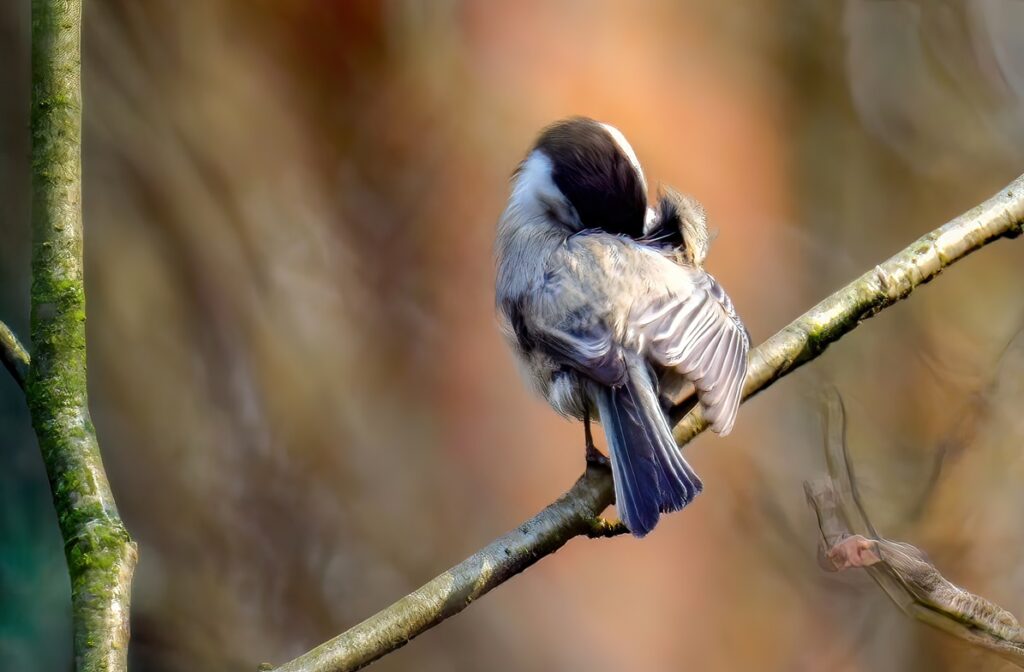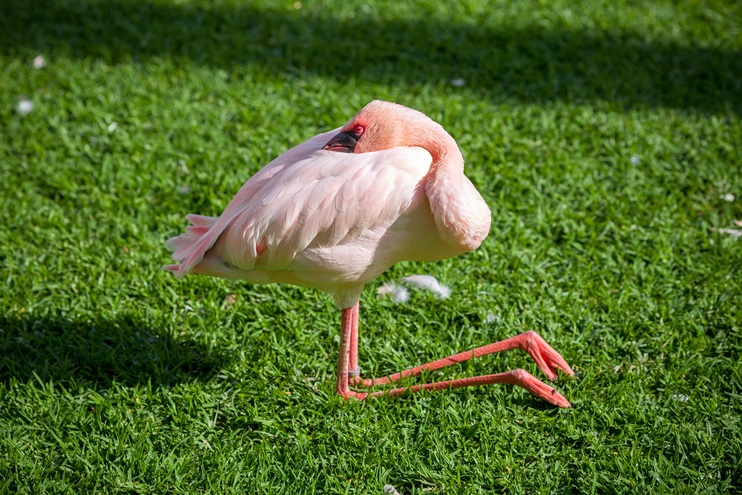If you’re wondering whether birds sleep, you probably already spotted one standing on a branch with one of its eyes open or hanging upside down. Naturally, they look odd to the human eye, making us wonder whether they’re asleep. And do they, after all, sleep?
The to-the-point answer is, yes, birds sleep, but their sleeping habits, schedules, and positions are very different from those of other animals.
Providing a concise answer to this question is pretty challenging, so we encourage you to keep reading to discover many incredible details about a bird’s sleeping behavior!

Do Birds Sleep?
Birds sleep, although their sleep is slightly different than that of humans and mammals. You’ve probably already heard about Non-rapid Eye Movement sleep and Rapid Eye Movement sleep or simply non-REM sleep and REM sleep.
Humans first cross non-REM sleep, which can last between 15 and 45 minutes, then reach REM sleep, when they can have intense dreams. In birds, however, these intervals are much, much shorter – around 2.5 minutes for non-REM sleep and only nine seconds for REM sleep.
Besides this, birds are known to keep half of their brains awake while sleeping, and the uniqueness stands in the fact that they can actually control it by how open or close they keep their eyes!
This answers your question about whether birds sleep with their eyes open! If you see a bird sleeping with one of its eyes open, you can rest assured that things are going as planned! The bird is just maintaining half of its brain awake!
This technique is called unihemispheric slow-wave sleep (USW) and helps birds stay alert in case any predators come around.
Some birds are even suspected to be able to use USW while flying, especially during migration. In fact, a study focusing on Alpine swifts proves that they can stay airborne during migration or foraging for more than six months. During that period, they sleep while flying. Scientists aren’t sure yet that this is valid for all migratory birds.
When Do Birds Sleep?
While it’s crystal clear that birds sleep, things get a bit more complicated when it comes to their sleeping schedule. This is directly connected to whether the birds are diurnal or nocturnal.
Most owls, for example, are nocturnal, which means they’ll find a hidden spot somewhere they feel safe and enjoy their sleep. Other birds are diurnal, which means they sleep during the night.
Things get even more complicated if we discuss how exactly birds sleep!
How Do Birds Sleep?
We bet you’ve heard at least once that these curious creatures sleep with their heads backward, right?! Well, it’s true. They fluff up their down feathers and then tuck their beaks into the feathers on their backs by turning their heads around. Crazy, isn’t it?! But wait, there’s more!
After the head is settled, many birds pull one leg up into their belly! It’s probably as uncomfortable as it sounds! But, in fact, it’s not. These adaptations help birds stay warm, especially during cold nights!
Moreover, if you’ve heard or even seen birds sleeping upside down, laying on the ground, perching, roosting, or even swimming, don’t be surprised! That’s only natural for them, and they’re very comfortable!

Do Birds Sleep On One Leg?
When you think about a bird standing on one leg, you’re probably imagining a flamingo standing in water, right?! Well, the truth is, they don’t change their position while sleeping!
Flamingos aren’t the only ones – many birds do this to preserve heat. Tucking one leg up cuts the amount of heat loss in half. However, this is probably more common during the winter, when birds do whatever they can to stay warm.
Why Don’t Birds Fall While Sleeping?
Birds don’t fall from branches while sleeping and are extremely comfortable in the weirdest sleeping positions because they can keep half their brains awake.
Besides this, some specialists suggest that these creatures have a balance-sensing organ between their hips.
These two factors could explain why birds are masters at sleeping standing up!
Where Do Birds Sleep?
Despite the common misconception that birds sleep in their nests, especially during the winter or when it rains, this isn’t entirely true, except for the breeding season, when they incubate the eggs.
Birds actually prefer sleeping anywhere they feel safe – locations with dense foliage, on branches high in trees, and in tree cavities, to name a few. Some species sleep in the water, while others cling to vertical tree trunks.
How Long Do Birds Sleep?
Most sources indicate that birds require around 10-12 hours of sleep. However, whether they actually get to sleep those full hours remains unclear.
Some pet birds might feel comfortable enough to enjoy a good night’s sleep without waking up too often. Wild birds, on the other hand, probably sleep in small snatches until external factors wake them up.
Besides this, birds are also known to engage in something called torpor. This is a kind of animal dormancy during which birds reduce their physiological activity by decreasing their body temperature and metabolic rate.
This is usually observed during the winter when birds rely on torpor to conserve energy and survive in freezing temperatures. Birds won’t easily wake up if they’re in a state of torpor.
